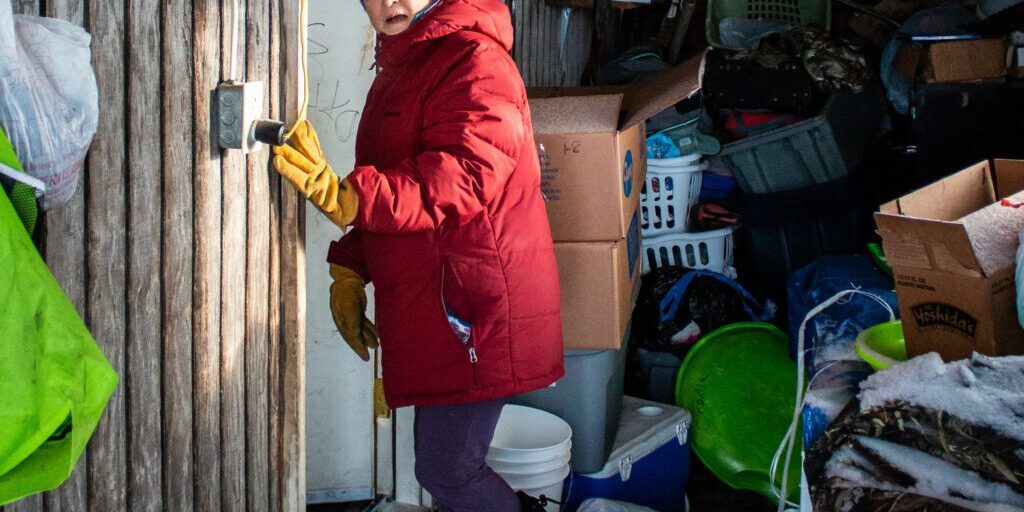How can people wash their hands regularly to prevent the spread of germs without running water?
In a recent two-part radio feature (part 1 / part 2), listeners heard from leaders in five ‘unserviced’ Bering Strait communities that do not have residential water or sewer access. In the villages of Wales, Stebbins, Teller, Shishmaref, and Diomede, some leaders have spent decades fighting for basic sanitation. In rural Alaska, where construction costs balloon quickly, finding funding is a moving, and sometimes disappearing, target.
Understanding where and when to apply for grants, as well as what each grant allows or does not allow, can be the difference between a working septic system or hauling waste. The source of funding for large scale water and sewer projects has long been confusing and controversial. For example, the mayor of Wales, Frank Oxereok, Jr., said some residents have wondered if federal grants are handed out alphabetically – beginning with ‘A’.
Another major roadblock is the absence of in-region certified water and sewer operators. Racheal Lee at Norton Sound Health Corporation, who organizes operator trainings, said the education funds are “absolutely not enough”, because only 7% of those who take the operator certification test in Alaska pass.

Last year, Senator Murkowski told listeners about stringent grant requirements that exclude structures like schools and public buildings: “I think it just boggles the mind to think that this is what we’re dealing with… It is a challenge.” The public attention drawn to the issue makes it easier for Alaska’s congressional delegation to push for change. Last summer, the acting director of Indian Health Service (IHS), Rear Admiral Michael Weahkee, came to see the situation firsthand. He toured sanitation facilities in Wales, St. Michael, and Shishmaref.

While hosting the delegation in her home, Alice Fitka, the president of St. Michael’s tribe, took the opportunity to extend an invitation to other members of the federal government. “Come to our village and see it for yourself. Then you’ll understand what we’re going through. You need to come to our community. Meet with the right people. Go to the homes that have problems with their water and sewer system. Then you’ll understand,” Fitka said.
Photo at top: Alice Fitka, the tribal president in St. Michael, welcoming KNOM listeners to her home.







